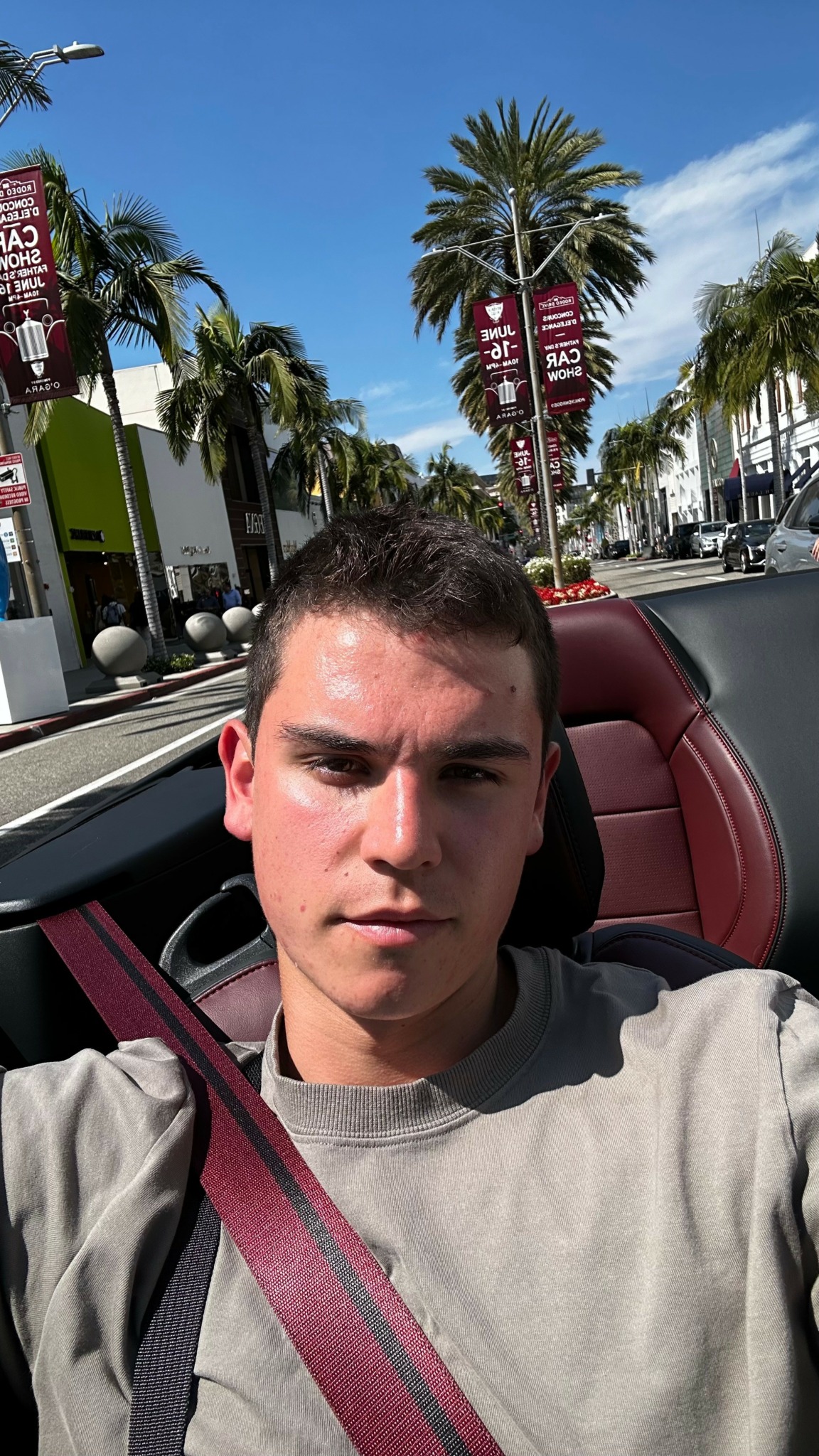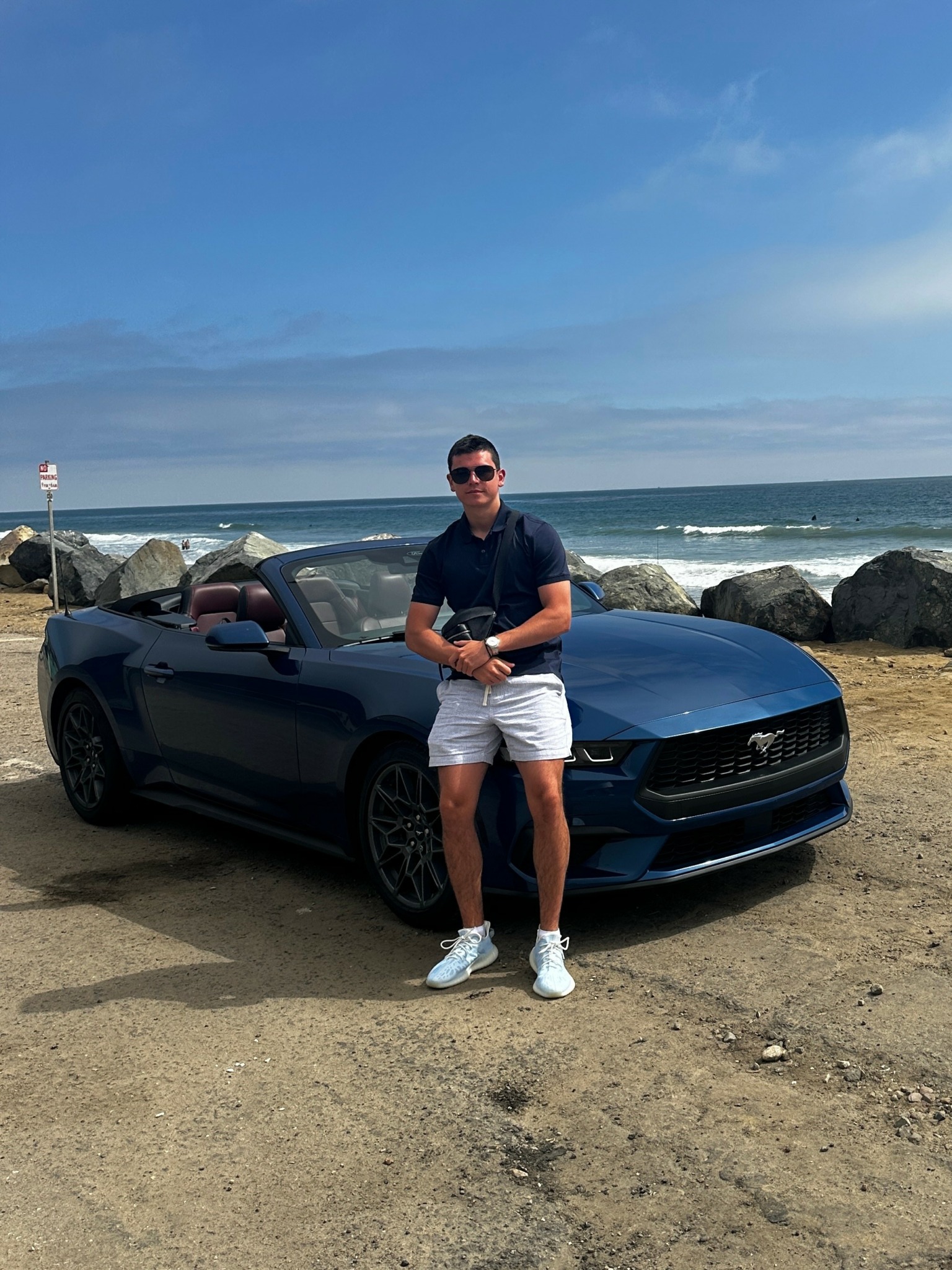We were lucky to catch up with Peter Szlivics recently and have shared our conversation below.
Peter, thanks for taking the time to share your stories with us today Coming up with the idea is so exciting, but then comes the hard part – executing. Too often the media ignores the execution part and goes from idea to success, skipping over the nitty, gritty details of executing in the early days. We think that’s a disservice both to the entrepreneurs who built something amazing as well as the public who isn’t getting a realistic picture of what it takes to succeed. So, we’d really appreciate if you could open up about your execution story – how did you go from idea to execution?
Starting a business often begins with a spark—a moment of inspiration. For me, that moment came from my lifelong love for BMW M cars. I’d always admired their precision, design, and the passionate community behind them. So, one day, I asked myself: “Why isn’t there a dedicated marketplace for these cars?” That was the seed of MList. But like any idea, taking it from concept to execution was the real challenge. Here’s how I turned that initial thought into a fully functioning platform.
It all started with a thought—a realization that while there were plenty of places to buy and sell cars, none focused exclusively on BMW M models. I wasn’t sure how big this niche was, but I knew one thing: if I, a passionate BMW enthusiast, felt this need, others would too. That’s when I decided to act.
At that point, I had limited resources—no fancy budget, no immediate access to a web development team, just me and my laptop. The first step I took was jotting down a rough idea of what I wanted MList to be. It didn’t have to be perfect at this stage. I just needed to capture my vision. I envisioned a place where buyers and sellers could connect easily, where fellow BMW M enthusiasts could feel understood and find like-minded people.
Once the idea was set, the next step was figuring out how to execute it with what I had. I didn’t have the funds to build a full-scale website initially, so I had to be resourceful. I turned to something as simple as Google Forms. Yes, it was basic, but it worked. I created a form where users could submit listings of their BMW M cars, which I would later upload and organize.
Using a Google Form might sound far from glamorous, but it was functional. And honestly, in those early days, all I cared about was getting something—anything—off the ground. That first week, I was reaching out to BMW forums, posting about my new platform, and encouraging others to submit their listings. Slowly but surely, word began to spread.
As MList started to gain traction, I knew I couldn’t keep running it on Google Forms forever. The growing user base required something more sophisticated. I had to think about scaling. But building a professional website takes more than just a great idea—it takes planning, tools, and a whole lot of figuring things out.
I knew I needed a website, but I didn’t have the immediate skills or funding to develop one. I spent days learning the basics of website building and design. I researched platforms, tools, and even free or affordable options to get started. Eventually, I found the right team and platform to help me transition MList into a fully functioning website. It was a slow process, but every new feature—whether it was a better user interface or an easier listing submission process—felt like a win.
During the first few months, I was constantly working on improving MList. Every day brought a new challenge: figuring out how to automate listings, building out more robust search features, or simply managing customer inquiries. The community was growing faster than I’d anticipated, and I had to keep up. On top of that, I was a full-time student, which meant balancing my academic responsibilities with the demands of running a business.
The first year wasn’t easy. There were times when things didn’t work, or when I wondered if I’d taken on too much. But I kept pushing forward, believing in the potential of MList. I realized that building a business wasn’t just about the big victories—it was about taking small, consistent steps every day.
One thing that set MList apart was its sense of community. This wasn’t just about transactions—it was about connection. As MList grew, I noticed people weren’t just coming to buy or sell cars; they were coming to share their love for BMW M cars, to connect with others who felt the same passion. That’s when I knew I had built something more than a marketplace—I had built a community.
To keep that community engaged, I expanded MList’s reach. I launched social media campaigns, created content around BMW M models, and encouraged users to share their experiences. This community-driven approach played a big role in the platform’s continued growth.
Fast forward to today, and MList has grown into a multi-thousand-member platform, with over 150 new members joining daily. It’s become the go-to marketplace for BMW M enthusiasts across the globe, and I’m proud of what it’s evolved into. Looking back, I realize that moving from idea to execution wasn’t a straight path. It was filled with obstacles, scrappy solutions, and lots of learning. But every small step brought me closer to building something real.
Taking an idea and turning it into reality is never easy, but it’s the most rewarding journey you can embark on. For MList, it started with a simple passion and the willingness to start small. You don’t need all the answers upfront—you just need to take that first step, even if it’s a Google Form, and keep moving forward. Today, MList is a thriving community, but it’s the lessons learned along the way that I cherish the most.

As always, we appreciate you sharing your insights and we’ve got a few more questions for you, but before we get to all of that can you take a minute to introduce yourself and give our readers some of your back background and context?
For those who may not know me, I’m Peter Szlivics, a serial entrepreneur currently leading three successful ventures: MList, a premier BMW M marketplace, PQR Media, my full-scale digital marketing agency, and my newest project, Avrora Academy, an online community fostering young entrepreneurs through stock market education and mentorship.
I’ve always been passionate about business and tech, starting early with MList, born from my love for BMW M cars. This platform connects like-minded enthusiasts, helping them buy and sell these high-performance vehicles. MList is entirely community-driven, offering a unique space that doesn’t exist elsewhere for BMW M fans worldwide.
From there, I expanded into digital marketing with PQR Media, where we provide tailored marketing strategies for businesses, including social media management, content creation, and SEO services. Our focus is on delivering real, measurable results for clients, whether they’re personal brands or larger companies. What sets us apart is the personalized attention we provide—every project gets the creativity and data-driven strategy it needs to succeed.
Recently, I founded Avrora Academy to help the next generation of entrepreneurs get a head start in the stock market through education and mentorship. I wanted to create a community where young, passionate individuals can learn from real-world experiences, build connections, and grow into successful entrepreneurs.
What I’m most proud of is the impact we’re having—whether it’s helping a business grow its digital presence or mentoring young entrepreneurs at Avrora Academy. The main thing I want people to know is that I’ve built these ventures with a focus on delivering value. Each project is designed to solve specific problems, and I’m passionate about seeing my clients, partners, and community members succeed.
In everything I do, I aim to create long-term value—whether through fostering growth in others or building strong, community-driven platforms.

Can you talk to us about how you funded your business?
When I first conceptualized MList, I set a challenge for myself: to grow this platform with minimal resources and let the business guide its own expansion. I didn’t have a large upfront investment or capital to rely on. Instead, I decided to leverage what little I had—a love for BMW M cars and a laptop—and take a slow, organic approach.
At the time, many entrepreneurs around me were focused on securing hefty investments before launching their businesses, believing that capital was the only way to guarantee success. But I wanted to prove that starting with less, leaning into resourcefulness, and letting natural demand dictate growth could be just as powerful—if not more so.
I didn’t hire developers or buy fancy tools. Instead, the first version of MList was a simple Google Form. I used free tools, created a community-driven platform, and manually listed cars for sale. It wasn’t flashy, but it worked. And as the form submissions started to grow, so did the natural revenue. Rather than pushing for artificial growth, I allowed MList to evolve based on its earnings. I reinvested that revenue slowly, upgrading the site, adding features, and bringing in help only when necessary.
The best part? I never felt like I was overextending myself. Every step MList took forward was guided by what the community needed and what the business could sustain on its own. It wasn’t until we started seeing steady revenue from advertisements and strategic partnerships that I really began to scale. But by that time, I had already built a loyal user base and a business that had grown organically from its own success.
I didn’t just want to build a platform—I wanted to challenge the notion that you need a lot of capital upfront to make it. I believe MList is a testament to the power of starting small and letting your passion guide you.

Any advice for growing your clientele? What’s been most effective for you?
The most effective strategy I’ve used to grow my clientele across all my ventures, including MList and PQR Media, has been to focus on delivering value before asking for anything in return. When I started MList, I didn’t charge users for listing their BMW M cars. I wanted to create a space where enthusiasts could connect and conduct business without feeling like they were being sold to. This “value-first” mindset created trust, and word of mouth became my strongest asset. People loved the platform because it wasn’t about profit—it was about solving a problem for them.
For my digital marketing agency, PQR Media, I applied a similar strategy. Instead of starting with aggressive sales pitches, I took the time to understand my clients’ needs. I gave away insights, consultations, and small services to prove that I could deliver results. This approach demonstrated my commitment to helping them grow, not just my desire to land a contract.
The beauty of this method is that it leads to organic growth. Happy clients become your biggest advocates. They refer their peers, they leave reviews, and they speak highly of your work. It’s a slow but steady process, and it’s rooted in building genuine relationships.
I also leaned heavily on authenticity and storytelling. People connect with stories more than they connect with services, so I made it a point to share my journey—how I started with minimal resources, why I created MList, and my passion for helping entrepreneurs at Avrora Academy. This narrative helped me stand out and attract clients who resonated with my mission.
Ultimately, client trust and relationship-building have been at the heart of my growth strategy. When you deliver real value, people notice—and they stick around.
Contact Info:
- Website: https://mlistco.com/
- Instagram: https://www.instagram.com/mlist.co
- Linkedin: https://www.linkedin.com/in/peterzl/



